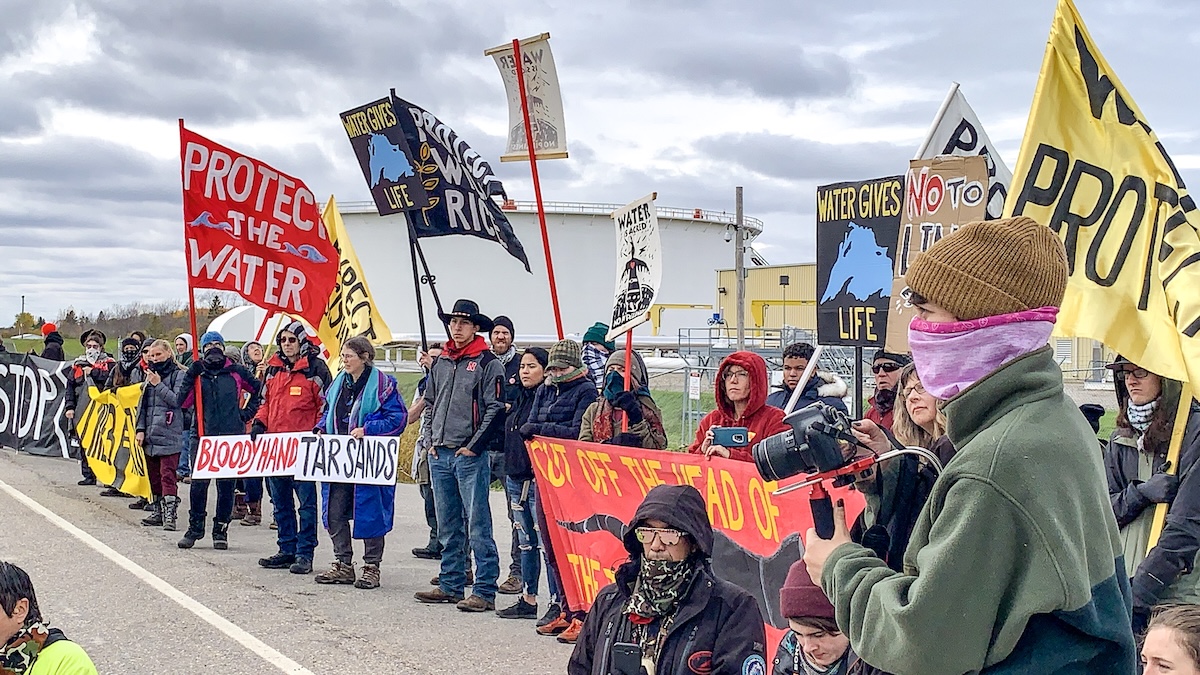Senior Contributor
Full article at:
Racial injustice in 2020 isn’t fundamentally a black problem, arguably it’s a white problem. Our most recent racial injustice reminders – George Floyd, Ahmaud Arbery, Amy Cooper, Omar Jimenez – while abhorrent and despicable, for most black people sadly weren’t all that shocking. For us, it wasn’t news. It was just a peek into the reality with which we’re all too familiar. This is why so many feel a sense of activism fatigue (whether they’re an activist or not) and why many insist that the onus really lay with white people to decide that enough is enough and decide to pick a side either racist or anti-racist. As executive director of the Antiracist Research and Policy Center Ibram X. Kendi insists, “There’s no such thing as being ‘not racist.’ We are either being racist or antiracist.” Many civil rights commentators argue that the broader tragedy of these incidents is the reminder that the Amy Coopers of the world aren’t unicorns. They’re around us everywhere – our doctors, judges, politicians, teachers, little league coaches, workplace colleagues, and bosses. So while this time of unrest will certainly pass, racial injustices will remain and therefore the question becomes – what will you do to improve your environment? I’ve been heartened to have white friends reach out to me in the past couple days to ask how they can help or what should they do (not just in the aftermath of the George Floyd tragedy but to support racial justice overall), and I truly appreciate the question. Were I a white person I doubt I would know how to respond or what to do so I offer this list of 10 actions white people can take in their workplace in particular to promote racial justice.
#1 – Get to Know More People of Color Fear is often the root of bigotry and one of the best antidotes for erasing fear is knowledge and familiarity. The saying is Know Me – Like Me – Trust Me, and that trust building process starts with simply knowing people better. It’s so much easier to fall victim to bigoted thinking and stereotypes when you don’t personally know people from that community and are completely ignorant of their culture, so get to know more people of color. For as much as we like to pat ourselves on the back for supporting “diversity in the workplace,” our society continues to be remarkably segregated. Pick a church on Sunday morning, a nightclub on Saturday night or a neighborhood subdivision any day and you’ll typically find them to be either predominantly one of color or white (rarely both). While there are exceptions, we tend to live and play in pretty segregated realities.
#2 – Call a friend of color this week to discuss the current state of protest and upheaval If it takes you more than 15 seconds to think of someone to call, see tip #1. Many would argue that ultimately this issue won’t just be resolved through laws and policies (while those are admittedly critical), but also at the human to human connection level. While these incidents of brutality and injustice are theater for some, for people of color this is a tiring day to day reality and it’s important that “friends” demonstrate empathy and start a critical dialogue. I was so proud of a few white friends who reached out to express concern and discuss the situation. Just as you’d call a friend if they had a death in the family or lost a job, you should reach out now as well. These incidents wear on the psyche of so many people of color as we worry not just for ourselves but for our children and broader community, and it’s important for friends to demonstrate not just compassion but sincere interest in doing what they can to help.
#3 – Join a diversity committee. If there isn’t one, start one. If you’re struggling to step outside your comfort zone, this is an easy way to take action. It doesn’t take much effort to join a diversity committee at your workplace, but it does send a signal to those around you that you have some level of empathy and interest. Participating on a diversity committee doesn’t just create opportunities to meet new people; it also provides an opportunity to learn a lot and begin to see issues from a different perspective.
#4 – Talk to your kids about race One of my friends said that she grew up in a white neighborhood with one black family, and race was not really discussed in her household. She said she didn’t even find out about the holocaust until they taught it in school when she was 16 and then was so traumatized learning of the injustices that she ended up missing several days of school and ultimately skipping the class altogether. She recalls it as a real trauma in her childhood particularly because she didn’t have adults around her to help her process it. Indeed, too many white (and black) kids grow up in their own little bubble with little understanding of the complexities of the outside world. It’s critically important that kids begin to learn about issues of race and equity early (in an age appropriate manner) so they can begin to develop their own awareness of injustice. While we may think of these issues are purely adult ones, equity issues often show up for kids quite early on the playground or in the classroom or cafeteria. I’m most proud of my kids when they tell me about seeing something that wasn’t right at school and deciding to do something to make it better. When their brains begin to think that way when they’re young, they’ll tend to make similar values based life decisions as they mature. If you don’t feel prepared for these sensitive discussions, seek out other resources.
#5 – Mentor a person of color If you’re in a leadership position in your organization, don’t wait for a mentoring program. Find a young person of color in your organization who is doing great things and take them under your wing. Even better – encourage your peers in senior ranks to do the same. We all know the critical importance of access to power. Break that vicious cycle by providing that valuable access to some who may never otherwise have it.
#6 – Encourage objective selection processes Subjectivity is often the death knell for people of color. Too often when selection processes or other decisions are made without clear cut objective criteria, people of color end up getting the short end of the stick. Indeed, unconscious bias often encourages decision makers to prefer one candidate over another – “I just feel like I connected better with Becky. She just seems like she would be a better fit with our team.” Or maybe the subjectivity leads to a preference for one vendor over another. “Jack’s proposal just felt more professional. I can’t put my finger on it, but he just seems to have a better product.” Reduce unconscious bias by insisting on blind review processes and clearly defined objective criteria that’s confirmed before the options are presented.
#7 – Don’t work for companies that aren’t diverse It’s 2020. Barring a few extreme anomalies, there’s simply no reason for companies of any significant size to not be diverse. Period. One of the most soul stripping feelings is knowing that you’re working in an environment that isn’t consistent with your values so if you value racial justice and human rights and know that your company does not, leave.
#8 – Insist on diversity on leadership teams Similarly, in 2020 there’s no real excuse for leadership teams with little to no diversity. In some cases this happens because the overall organization has so little diversity (see tip #7). Otherwise, simply point this out to the group. “I’m noticing that our team isn’t too diverse. Is anyone else concerned about that?” The next step is critical – listen and see how they respond. If you get backlash or crickets, see tip #7, but this might just be the opening or the spark for someone else to speak up who didn’t have the courage to say something previously. Once there is increased diversity, make sure there’s real inclusion as well.
#9 – Challenge your own stereotypical beliefs Changing your behaviors and actions starts with changing your thoughts. Challenge yourself to identify your own deeply embedded stereotypes or bigoted thoughts. Did your parents make disparaging remarks about people of color while you were growing up which may have caused you to think of black people as lazy or not as smart. If you haven’t had direct experiences in college or graduate school (for example) to challenge that thinking, you may subtly maintain those stereotypes. While I’m thrilled to see that MIT has elected its first black female student body president ever (159 years), I can’t help but shake my head at the thought that it took that long.
#10 – Speak up publicly Microaggressions and inequities are pervasive in the workplace, and it’s so important for white people to speak up when they happen. The simple truth is that most corporations do have a bit of a corporate caste system, and when those in positions of power stay silent, little changes. So when you see something, say something. Don Lemon was widely praised on social media for using his platform to lovingly but publicly call out celebrities who had contacted him privately in the aftermath of these racially charged events but ostensibly hadn’t taken action or voiced outrage publicly, and he is so right. Real change happens when we are willing to stick our neck out and say something publicly – not whispering in the break room or sending private chat messages on the conference call. So the next time you’re in a meeting and you can tell that the one or two people of color can’t get a word in edgewise or their comments seem to be easily minimized, offer support. It might sound like this – “Jeff, if you don’t mind before we move on, I’d like to revisit Leon’s idea. I think that’s an innovative approach that we hadn’t thought about and it would be smart if we spent a bit more time unpacking that.” Let me be clear for anyone who wants to pat themselves on the back for forwarding a racially conscious social media meme in recent days. It’s not a profile in courage to comment on a horrific video, then just continue on with business as usual. In this moment, we all have some level of responsibility. As Martin Luther King famously said, “In the end, we will remember not the words of our enemies, but the silence of our friends.”


